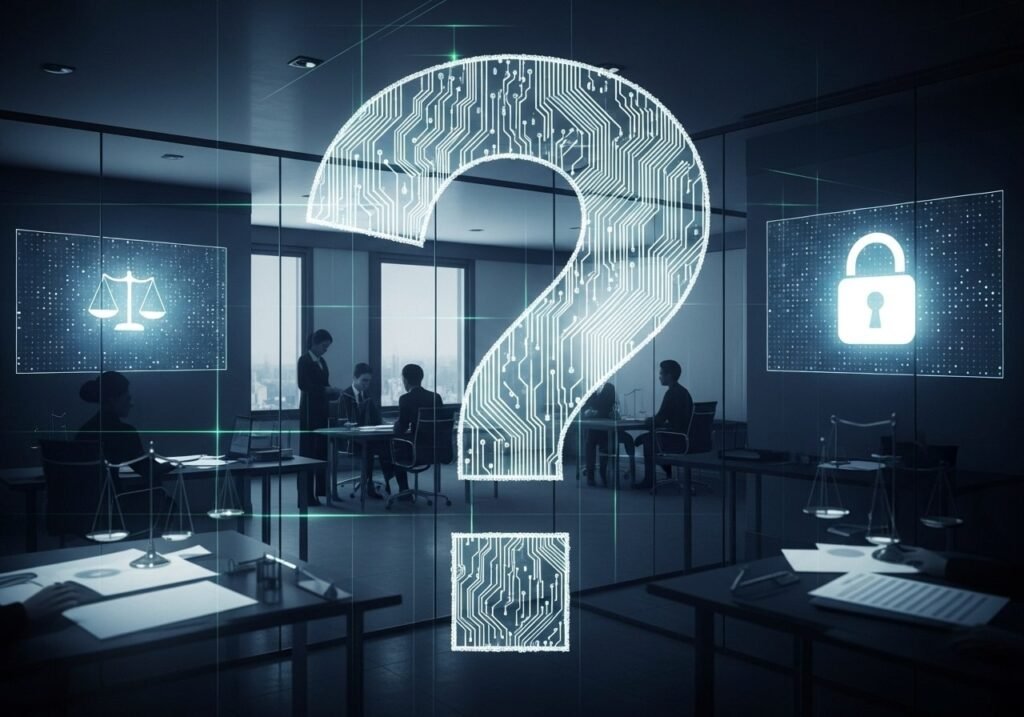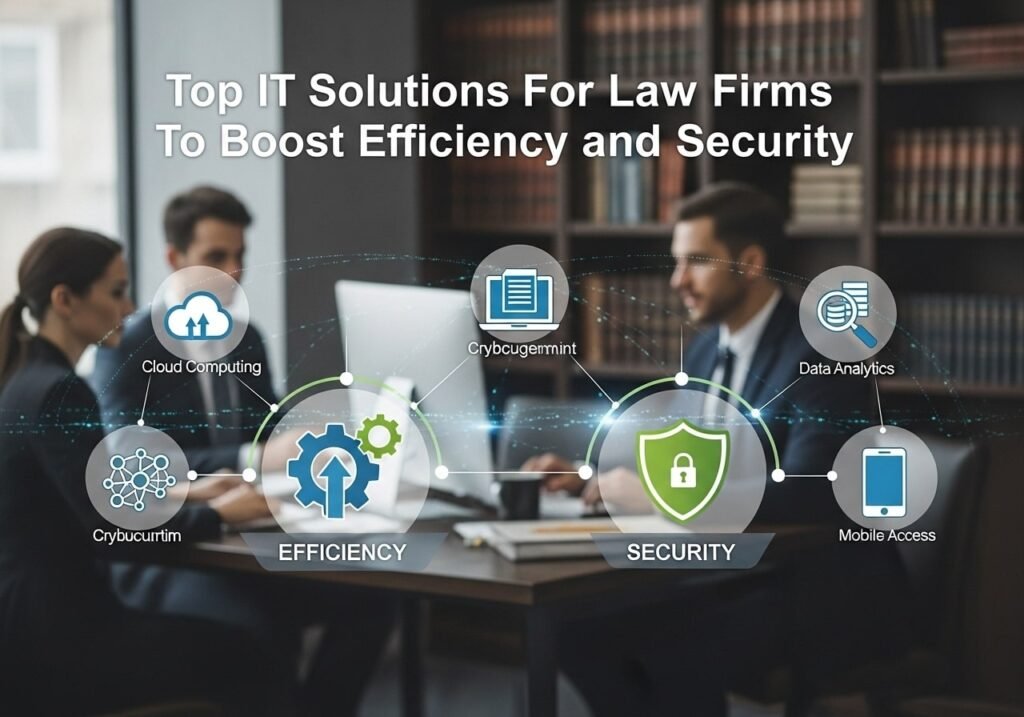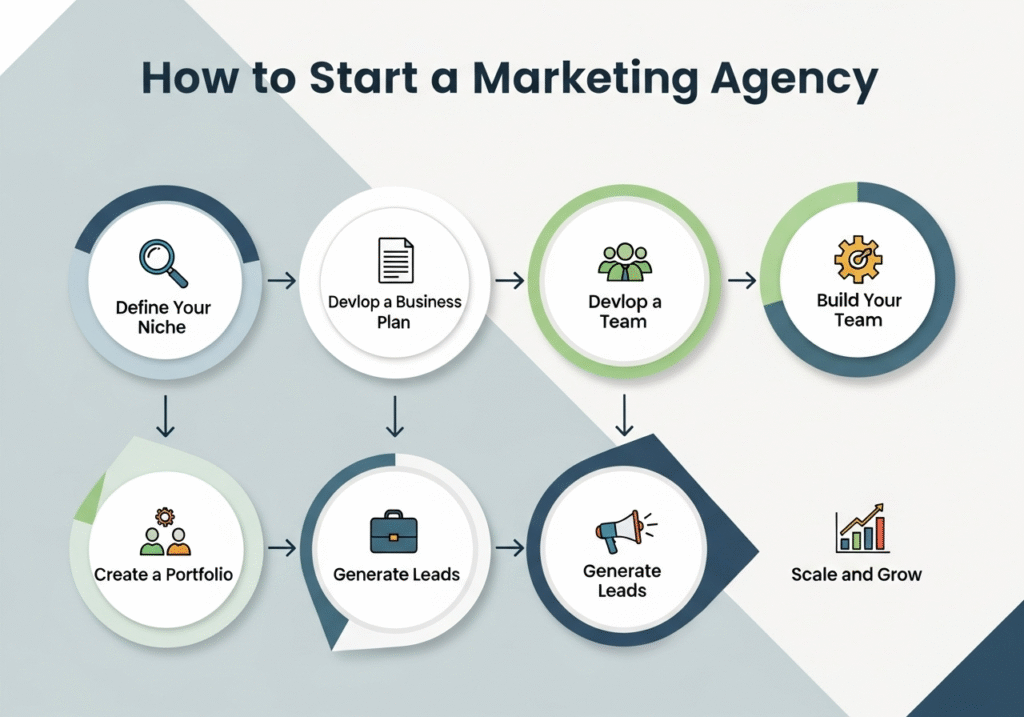Modern law firms face unique technology challenges that require specialized IT solutions for law firms. From managing confidential client data to ensuring regulatory compliance, legal practices need more than basic computer support.
The best IT solutions for law firms combine security, efficiency, and industry-specific features that help attorneys focus on what they do best – practicing law.
Whether you’re a solo practitioner or part of a large firm, understanding your technology needs is crucial for success in today’s digital legal environment. This comprehensive guide explores everything you need to know about legal technology solutions and services.
Do Law Firms Have IT Departments?
Small and Mid-Size Firms
Most small to medium law firms (1-50 attorneys) typically don’t have dedicated IT departments. Instead, they rely on:
- External IT service providers who specialize in legal technology
- Part-time IT consultants who understand legal industry requirements
- Cloud-based solutions that reduce the need for in-house technical staff
- One designated person (often an office manager) who handles basic tech issues
Large Law Firms
Larger firms (50+ attorneys) often maintain internal IT departments because they:
- Handle more complex technology infrastructure
- Have greater security and compliance requirements
- Need 24/7 technical support for multiple offices
- Manage specialized legal software across many users
Hybrid Approach
Many firms today use a combination of internal and external IT support. They might have one or two in-house IT staff members who work alongside specialized legal IT services providers.
Why Law Firms Need Specialized IT Solutions
Unique Industry Requirements
Law firms have specific technology needs that differ from other businesses:
Confidentiality and Privacy
- Attorney-client privilege protection
- Secure document storage and sharing
- Encrypted communication systems
- Access controls for sensitive information
Regulatory Compliance
- State bar association requirements
- Industry-specific data protection rules
- Audit trail maintenance
- Professional liability considerations
Billing and Time Tracking
- Integration with legal billing software
- Time tracking across multiple matters
- Trust account management
- Client cost allocation
Common Technology Challenges
Law firms frequently struggle with:
- Outdated systems that can’t keep up with modern demands
- Data security concerns due to high-value information
- Staff training on new technology platforms
- Integration issues between different software programs
- Remote work capabilities for flexible operations
Do Law Firms Need Cybersecurity?

Why Law Firms Are Prime Targets
High-Value Information
Law firms store incredibly valuable data including:
- Financial records and intellectual property
- Personal information of clients
- Merger and acquisition details
- Litigation strategies and case information
Weaker Security Measures
Many law firms have historically underinvested in cybersecurity compared to other industries handling sensitive data.
Essential Cybersecurity Measures
Basic Security Requirements
- Multi-factor authentication for all accounts
- Regular software updates and patch management
- Encrypted email communication
- Secure Wi-Fi networks with guest access separation
- Regular data backups stored securely offsite
Advanced Security Features
- Network monitoring and intrusion detection
- Employee security training programs
- Incident response planning
- Regular security audits and penetration testing
- Cyber insurance coverage
Compliance Considerations
- State bar association cybersecurity requirements
- Client notification procedures for data breaches
- Professional liability insurance that covers cyber incidents
- Documentation of security measures and policies
Cost of Security Breaches
The average cost of a data breach for law firms includes:
- Direct costs: Investigation, notification, and remediation
- Indirect costs: Lost clients, reputation damage, and regulatory fines
- Professional liability: Potential malpractice claims
- Regulatory penalties: State bar discipline and sanctions
Best IT Solutions for Law Firms
Core Technology Infrastructure
Document Management Systems
- Cloud-based document storage with version control
- Search capabilities across all firm documents
- Client portal access for document sharing
- Integration with email and billing systems
Case Management Software
- Matter tracking and deadline management
- Client communication history
- Task assignment and workflow automation
- Reporting and analytics capabilities
Legal Research Tools
- Online legal databases and research platforms
- AI-powered research assistance
- Citation checking and document analysis
- Integration with document drafting tools
Communication and Collaboration Tools

Email and Messaging
- Encrypted email solutions
- Unified messaging platforms
- Video conferencing capabilities
- Mobile device management
Client Communication
- Client portals for secure communication
- Online appointment scheduling
- Digital intake forms and questionnaires
- Automated client update systems
Financial Management
Billing and Accounting
- Legal-specific billing software
- Time tracking integration
- Trust account management
- Financial reporting and analytics
Payment Processing
- Online payment acceptance
- Credit card processing with legal compliance
- Electronic fund transfers
- Payment plan management
Cloud vs. On-Premise Solutions
Cloud Benefits
- Lower upfront costs and predictable monthly expenses
- Automatic updates and maintenance
- Enhanced security through specialized providers
- Better disaster recovery and business continuity
- Easy remote access capabilities
On-Premise Considerations
- Greater control over data and systems
- Potential cost savings for larger firms
- Customization capabilities
- Integration with existing systems
Legal IT Services: What to Look For
Essential Service Categories
Technical Support
- 24/7 help desk availability
- Remote and on-site support options
- Proactive system monitoring
- Regular maintenance and updates
Security Services
- Cybersecurity assessments and monitoring
- Data backup and recovery services
- Employee security training
- Incident response planning
Strategic Consulting
- Technology planning and roadmap development
- Software selection and implementation
- Process improvement recommendations
- Digital transformation guidance
Evaluation Criteria
Industry Experience
- Proven track record with law firms
- Understanding of legal industry regulations
- References from similar-sized firms
- Specialized certifications and training
Service Level Agreements
- Response time guarantees
- Uptime commitments
- Performance metrics and reporting
- Clear escalation procedures
Pricing Models
- Fixed monthly fees vs. hourly rates
- Included services and additional costs
- Contract terms and flexibility
- Value-added services and benefits
IT Solutions for Law Firms in USA: Market Overview
Market Trends
Cloud Adoption
The legal industry has seen significant growth in cloud-based solutions:
- Over 60% of law firms now use cloud-based practice management
- Email hosting in the cloud has become standard
- Document storage increasingly moving to cloud platforms
Artificial Intelligence Integration
AI tools are becoming more common in legal practice:
- Document review and contract analysis
- Legal research assistance
- Predictive analytics for case outcomes
- Automated document drafting
Remote Work Technology
The pandemic accelerated remote work adoption:
- Virtual court appearances and depositions
- Collaborative document editing platforms
- Secure remote access solutions
- Digital signature capabilities
Regional Considerations
Compliance Variations
Different states have varying requirements for:
- Data storage and protection
- Client notification procedures
- Professional liability standards
- Technology competence requirements
Local Service Providers
Benefits of working with local IT solutions for law firms in USA providers:
- Understanding of local regulations and courts
- On-site support availability
- Relationships with legal community
- Knowledge of regional technology preferences
Choosing the Right IT Partner
Assessment Process
Current State Analysis
Before selecting an IT partner, evaluate your firm’s:
- Existing technology infrastructure
- Current pain points and limitations
- Growth plans and future needs
- Budget constraints and priorities
Needs Identification
Identify specific requirements for:
- Security and compliance needs
- Integration requirements
- User training and support needs
- Scalability and growth capacity
Vendor Selection
Request for Proposal (RFP) Process
- Define clear requirements and expectations
- Request detailed service descriptions and pricing
- Ask for client references and case studies
- Evaluate technical capabilities and certifications
Due Diligence Steps
- Check references and online reviews
- Verify insurance and bonding coverage
- Review contract terms and service agreements
- Test support responsiveness and quality
Implementation Planning
Project Management
- Establish clear timelines and milestones
- Assign project champions from both organizations
- Plan for staff training and change management
- Develop testing and quality assurance procedures
Risk Mitigation
- Plan for data migration and system cutover
- Establish backup procedures during transition
- Communicate changes to clients and staff
- Monitor performance during initial deployment
Implementation and Best Practices

Change Management
Staff Training and Adoption
- Provide comprehensive training on new systems
- Create user guides and reference materials
- Establish internal champions and power users
- Plan for ongoing training and skill development
Client Communication
- Inform clients about technology improvements
- Provide guidance on new communication methods
- Address security and privacy concerns
- Highlight benefits and enhanced services
Ongoing Optimization
Performance Monitoring
- Track system performance and user satisfaction
- Monitor security incidents and responses
- Review cost savings and efficiency gains
- Assess ROI on technology investments
Continuous Improvement
- Regular technology assessments and updates
- Stay current with industry trends and innovations
- Gather feedback from staff and clients
- Plan for future technology needs and upgrades
Success Metrics
Operational Metrics
- System uptime and reliability
- Support ticket resolution times
- User adoption rates
- Process efficiency improvements
Business Impact Metrics
- Cost savings and ROI
- Client satisfaction scores
- Staff productivity measures
- Security incident reduction
Conclusion
Implementing the right IT solutions for law firms is essential for modern legal practice success. From basic infrastructure to advanced cybersecurity measures, technology enables law firms to serve clients more effectively while maintaining the highest standards of security and compliance.
The best IT solutions for law firms combine industry-specific features with robust security and reliable support. Whether you choose to work with specialized legal IT services or develop internal capabilities, the key is to start with a clear understanding of your firm’s unique needs and growth objectives.
As the legal industry continues to evolve, staying current with technology trends and maintaining strong IT partnerships will be crucial for competitive advantage. Take time to assess your current technology capabilities and develop a strategic plan for improvement.
Ready to improve your firm’s technology infrastructure? Contact experienced legal IT professionals today to discuss your specific needs and explore the IT solutions for law firms that can transform your practice. Don’t let outdated technology hold your firm back from reaching its full potential.



